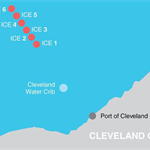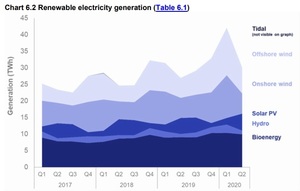Hu Honua files appeal with Hawaii Supreme Court
Energy Disrupter
ADVERTISEMENT
Hu Honua Bioenergy LLC on June 29 filed a notice of appeal with the Hawaii Supreme Court seeking to vacate a May 23 order issued by the Hawaii Public Utilities Commission denying the company’s power purchase agreement (PPA) with Hawaiian Electric Light Co. Inc. (HELCO). Hu Honua and HELCO last month asked the PUC to reconsider its decision to deny the PPA. The PUC denied that request on June 24.
Hu Honua Bioenergy is the developer of a nearly complete 30 megawatt (MW) biomass power plant in Hawaii. Work to develop the biomass-fired power project has been ongoing for more than a decade, with development of the project nearly complete since at least mid-2020.
The facility is located at the site of the former Hilo Coast Power Co. in Pepeekeo, Hawaii, which is located near the eastern coastline of Hawaii’s big island. A sugar mill was developed at the site in 1857. A power facility was added to the site in 1972 and was fired with sugarcane bagasse until sugar production ended in 1994. The power facility continued to operate through 2004 but was fired with coal rather than bagasse. Hu Honau began work to refurbish the plant to produce biomass-based energy more than a decade ago, with plans to fuel the facility with locally grown biomass, including eucalyptus.
The PUC approved a PPA between HELCO and Hu Honua in late 2013. The project however faced development delays and legal challenges. HELCO announced plans to terminate that PPA in 2016 as a result of those delays. Hu Honua in 2017 announced that it had reached an agreement with HELCO for an amended PPA, which was approved by the PUC later that year. The PPA was soon challenged by an environmental group. The legal challenge reached the Hawaii Supreme Court, and the court in 2019 rejected the PPA, ruling that the PUC was required to expressly consider the reduction of GHG emissions in its decision making. In June 2019, the PUC re-opened a docket related to the PPA. The PUC later issued an order determining that HELCO had not sufficiently supported its request for a waiver of the competitive bidding process for the Hu Honua facility. Such a waiver had previously been approved for the project, but the PUC concluded that that approval had been voided by the Supreme Court ruling. Legal and regulatory wrangling over the PPA continued through the spring of 2022, with the PUC handing down its decision to deny the amended PPA on May 23. Hu Honua and HECLO filed separate motions for reconsideration with the PUC on June 2. The PUC on June 24 denied those motions and closed the docket.
A statement released by Hu Honua on June 29 explains that the notice of appeal filed with the Hawaii Supreme Court addresses the PUC’s May 23 majority decision and order denying the PPA and the subsequent order, issued June 24, denying HELCO’s motion for reconsideration and Hu Honua’s motion for reconsideration, clarification and further hearing.
“We have a strong case based on the law, on the precedent of the PUC approving our PPA twice before, and on the evidence showing Honua Ola will produce clean renewable energy while benefiting the Big Island’s environment and creating much-needed jobs,” said Warren Lee, president of Honua Ola Bioenergy (Hu Honua Bioenergy LLC in legal documents), in a statement. “We have met the burden for approval to begin operations by presenting an extensive record of objective evidence, facts, and analyses that is consistent with the requirements established by the Hawai‘i Supreme Court.”
A civil appeal docketing statement filed by Honua Ola in conjunction with the notice of appeal, stated, “Unfortunately, but unsurprisingly, the PUC has now disregarded the court’s mandate and applicable law for the third time in three years.” The docketing statement also noted, “For the past three years, a majority of the PUC commissioners, led by the PUC’s outgoing chair, worked tirelessly toward a preordained result: ensuring that Hu Honua’s half-billion-dollar renewable energy project, which is 99 percent complete, never goes online.”
















